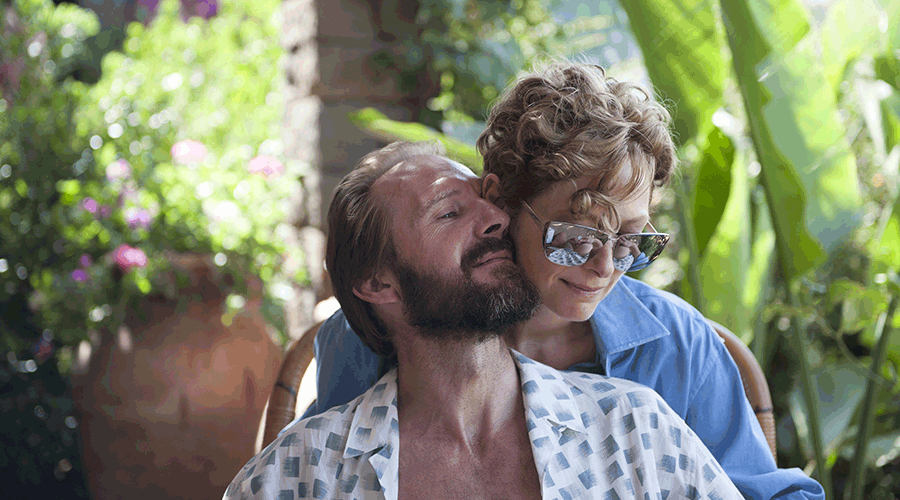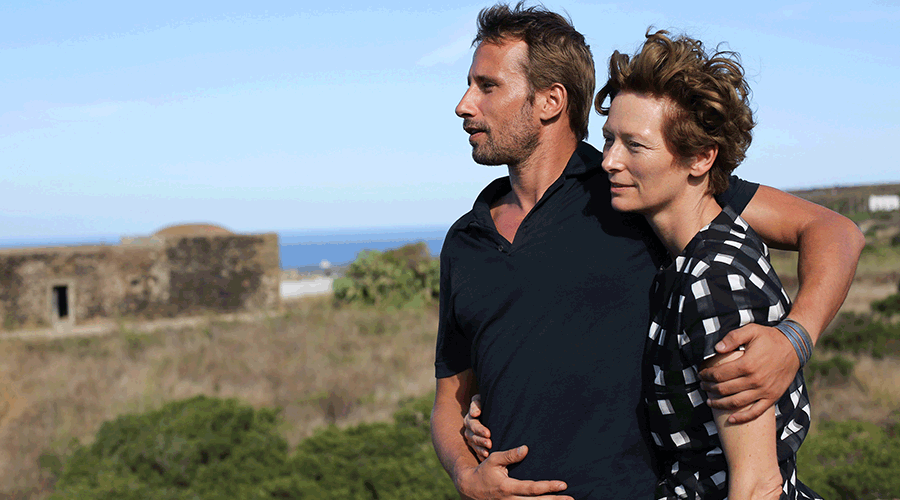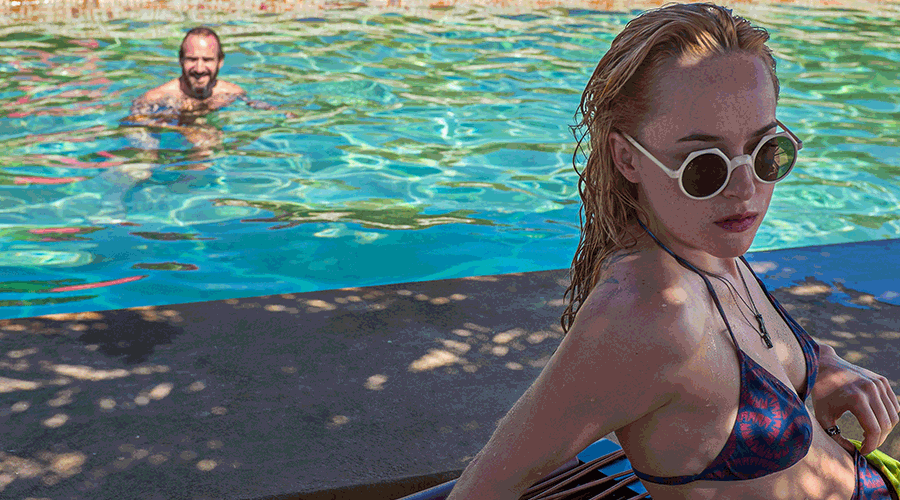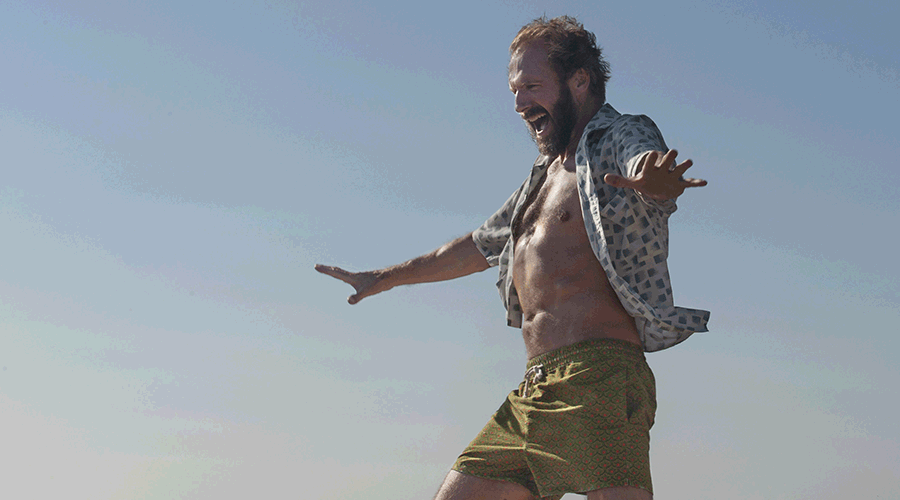“I Don’t Give a Big Damn About Nudity” We Chat to ‘A Bigger Splash’ Director

A Bigger Splash is the salacious psychological drama starring Oscar-winner Tilda Swinton and two-time Oscar nominee Ralph Fiennes alongside Matthias Schoenaerts (The Danish Girl) and Dakota Johnson (50 Shades of Grey), following a famous rock star and her young partner whose holiday retreat is crashed by her former lover and his estranged daughter.
The film is playing nationwide this week (check here for session times near you) and we got a chance to talk to director Luca Guadagnino, who previously impressed with the 2009 Academy Award-nominated I Am Love.
FLICKS: What did you think of the Oscars? Did it hold any surprises for you?
LUCA GUADAGNINO: I’m delighted for the six Oscars to the wonderful Mad Max: Fury Road, and I wish the movie could have gotten also Best Director because it totally deserved it as much as it deserved Best Picture.
And I’m happy for Ennio Morricone [winner of Best Original Score for The Hateful Eight]. Not because he’s Italian, but because he’s the eldest winner ever, and that’s something that moves me very much.
Would you describe ‘A Bigger Splash’ as a film about love or more a film about lust?
Neither one nor the other. I think it’s a movie about regret, and about transformation, and about the nostalgia of these transformations. It’s a movie about what you lose and what you are not capable of losing. So, I don’t think the movie is exploring love – for sure – and I think that lust is very peripheral to the movie, in a way. It’s more deeply about what we desire, and how we desire the other, and how we are able to face impossibility in the relationship with the other, or not.

Tilda Swinton is largely mute in the film. When it comes to directing that kind of character, does that require more delicacy, or did you find it’s just the same as directing the other actors?
Well, every actor has hers or his individuality, and in directing you don’t direct people with only one way of method because if you do that then you fail. You direct the actors the same way you communicate with people, trying to listen to the other instead of imposing yourself.
The director would really try to listen and to understand the terrain, the personality, and then behave consequently. So, it’s not that Tilda is more or less difficult than directing other actors, she is different from anyone else, as much as the other ones are different from anyone else. You start a strategy of communication that goes into the individual nature of each of them.
How does that communication first get established during the first rehearsals?
Well, I don’t think rehearsals is the moment in which you direct someone, or you establish communication. You establish communication by the virtue of an engagement from someone who wants to work with you, that’s the beginning of the establishing communication. So, you have to be curious, you have to listen to people, and then you have to develop your knowledge of the other.
Rehearsal is not a big deal for me. It’s more about life – going to the restaurants together, that’s more important.
How do you prefer to communicate to a given actor for the first time?
You look for a common ground, you try to establish a number of things that can become the parallel things that unite you with the other actors or actresses. And then when you establish that, you try to look for the differences.
It’s like talking to a person you like. How do you talk to a woman or to a man that you like, for the first time, you know? For me, it has to do with your capacity of listening.

What is the one thing that you keep in mind when filming nudity?
I don’t give a big damn about nudity. I’m a director and I direct stories about people, and people too are naked as much as they are covered like we are. Like today, in the next 15 hours, you and I will be naked, and maybe we will be naked in front of someone else, and then we will be covered with clothes, and we will be having biological functions to do. So, if you are a director you cannot make a difference between a clothed actor and a naked actor, as far as you are representing the human condition, and that comes with nudity or being covered.
For me, I dismiss any aura of sacrality or difficulty to the concept of filming someone naked, and in fact when I have a shy actor or actress – it’s usually the men who are more shy – I just dismiss it, because for me that’s not a big deal.
It’s also about being able, of a strong complicity, and making people at ease. I am at ease, so I want other people to be at ease. I never force anybody to do anything.
When you’re on location and you’re filming a particular scene, do you already have an idea of where you want to place the camera? Or, do you let the scene play out a few times and get an idea of where you want to place a camera?
Often when I see a place for the first time before shooting, I decide where the camera goes and I rarely change my opinion about it. But I also am very open to surprises. But I’m pretty specific.

Does this specificity also come down to following the script? Or do you like to have the actors improvise a lot of the lines?
It’s not about improvisation, it’s about evolution.
A script is a fantastic tool, it’s a great part of my work but it’s a page, with words. Then you have to create life, or a resemblance of life, in images that are created by a large group of people together there to give life to those words on the page. So, it’s not about improvisation and it’s not about sticking to the script, it’s about being intelligent and clever, and understand how to adapt and how to bring those words to life.
How much of that adaptation also comes into the editing room?
Well, you write the movie three times; you write the movie with the writers in the first place, then you write the movie when you shoot it with the camera, but then you go into the editing room and finally you are reunited with the effort of your writer and the effort of the shoot – which includes all the cast, and the crew, and the collaborators – and you are in a personal relationship with someone, which is the editor, who is going to help you rewrite the film for the third time.
As the winner of the Academy Award for the Best Editing [Margaret Sixel] said – for Mad Max – editing is actually writing.
‘A Bigger Splash’ movie times – in cinemas Thursday, 10th March
















